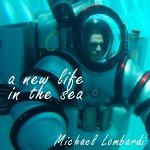The Age of Discovery and subsequent settlement of the New World was highly dependent on waterways. Navigation, transportation, food source, a place to bathe – and it goes on. There was a dependence there that warrants not only appreciation, but also an intricate symbiosis necessary for survival. Human civilization evolved along coasts and waterways because it was necessary to do so. Today’s developing nations are similarly dependent on natural waterways.
With our first settlements and colonies evolving into the modernized era, the industrialized world, not coincidentally, was given rise along these same waterways. The dependence, particularly for transportation, remains to this day. However with the industrialized world came contaminants of all types, and so these waterways have been severely contaminated. Why do beaches close? Why are shellfish beds closed periodically? Why are we advised not to eat fish from certain freshwater streams? Why can’t we drink the water from a fresh spring?
Hmmm, well…It’s our own fault, and it’s sad. Industrialization took place without the necessary thorough intimate knowledge of our waterways and their ecosystems, and now, frankly, they are ruined. Further, these areas will probably never get the attention they deserve because of one word: aesthetics.
Industrialized waterways are sights for sore eyes, not a vacation destination. It is common for people to venture to a waterway for vacation…to a favorite beach home, a tropical island, or a lake off the beaten path. Those places can be appreciated because they have retained an aesthetic quality that is attractive to humans. Try to industrialize these regions…no way! The aesthetic quality of these areas is in enough demand that calls to protect them are heard and acted upon.
One challenge environmentalists face today is protection of all waterways, and cleaning up of industrial waterways in particular. This is no small feat, as their aesthetic quality is long since history, and it is incredibly difficult to convey their value to the average person. A person living thousands of miles from a coastline can find value in a tropical paradise because it is aesthetically appealing. This is not the case for an area thick with industry. Sadly, it is going to take more than localized conservation efforts to revamp our major industrial ports and harbors.
Our challenge is this…to find an effective means of communicating the value of our waterways, beyond aesthetics, to all humans. Imagine not having the luxury of turning on the faucet and out coming water. We have been spoiled by industrialization, to the point where understanding the intricate tie of water with the survival of our species is largely lost.

